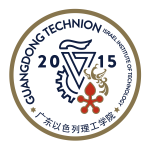
Weiran Zheng
Associate Professor, Chemistry Program
Office: R423, North Campus
Research Group Website: The Zheng Group
Dr. Weiran Zheng received his B.Sc. degree from Wuhan University in 2009 and was awarded a Chinese Scholarship Council (CSC) joint Ph.D. scholarship in 2012 to study in Prof. Shik Chi Edman Tsang’s group at the University of Oxford. After receiving his Ph.D. degree in physical chemistry from Wuhan University in late 2015, he worked as a postdoctoral fellow in Prof. Kwok-yin Wong’s group at the Hong Kong Polytechnic University. During this period, he participated in research projects in Hong Kong and Guangdong Province, China. His main research interests include electrocatalysis mechanism exploration and rational design of catalytically active sites of electrocatalysts for energy conversion. So far, he has published more than 30 papers in ACS Catalysis, ACS Energy Letters, Matter, Advanced Energy Materials, and other electrochemical/electrocatalytic journals. He joined Guangdong Technion – Israel Institute of Technology (GTIIT) in January 2022 as an Associate Professor.
Group website: https://www.thezhenggroup.com/
Dr. Weiran Zheng’s research group in GTIIT mainly involves two aspects of electrocatalysis: mechanism understanding and rational catalyst design. The main focus is to apply in situ characterization techniques in electrochemistry (e.g., on-line differential mass spectrometry, combined electrochemical/atomic force microscopy system, in situ Raman spectroscopy, in situ UV-Vis spectroscopy, etc.) to directly observe the changes of electrodes/interfaces/electrolyte during electrochemical processes, so as to understand the actual physical meaning of electrochemical phenomena from a chemical/structural perspective. By studying the causes of catalyst deactivation, instability, and performance drop using in situ techniques, the group aims to use such information to guide the construction of efficient, highly stable, and practical electrocatalytic systems for a sustainable world. The group primarily targets three processes of particular environmental and energy impact: 1. electrochemical separation and conversion of carbon dioxide; 2. large current impure water electrolysis; 3. electrochemical biomass conversion. The goal is to understand the relationship between the nature of the active sites (surface configuration, electronic state, facet, etc.) and their catalytic activity/selectivity/stability from the scale of a single atom to nanoparticles, with the aim to achieve ~100% atomic efficiency.
- in situ technology coupled with electrochemistry;
- electrocatalyst deactivation mechanism;
- electrochemical conversion of carbon dioxide and biomass;
- large current water electrolysis
Zheng, W. iR Compensation for Electrocatalysis Studies: Considerations and Recommendations. ACS Energy Lett. (2023)
Zheng, W., Lee, L.Y.S. Beyond Sonication: Advanced Exfoliation Methods for Scalable Production of 2D Materials. Matter (2022)
Zheng, W., Lee, L.Y.S. Metal–Organic Frameworks for Electrocatalysis: Catalyst or Precatalyst? ACS Energy Lett. (2021)
Zheng, W., Li, Y., Liu, M., Lee, L.Y.S. Few‐Layer Tellurium: Cathodic Exfoliation and Doping for Collaborative Hydrogen Evolution. Small (2021)
Zheng, W., Liu, M., Lee, L.Y.S. Electrochemical Instability of Metal-Organic Frameworks: In Situ Spectroelectrochemical Investigation of the Real Active Sites. ACS Catal. (2020)
Zheng, W., Liu, M., Lee, L.Y.S. Best Practices in Using Foam-Type Electrodes for Electrocatalytic Performance Benchmark. ACS Energy Lett. (2020)
Zheng, W., Lee, J., Gao, Z., Li, Y., Lin, S., Lau, S.P., Lee, L.Y.S. Laser-Assisted Ultrafast Exfoliation of Black Phosphorus in Liquid with Tunable Thickness for Li-Ion Batteries. Adv. Energy Mater. (2020)
Zheng, W., Li, Y., Lee, L.Y.S. Bismuth and Metal-Doped Bismuth Nanoparticles Produced by Laser Ablation for Electrochemical Glucose Sensing. Sens. Actuators B: Chem. (2022)
